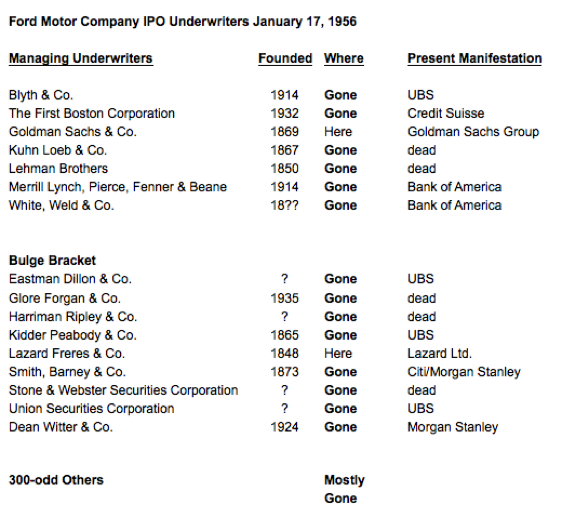Here’s your assignment: You’ve just been elected President of the United States. Your most urgent Cabinet appointment is Treasury Secretary, the person who will lead us out of the worst financial abyss since the Depression.
Obviously, this person must have not only the leadership skills and charisma to inspire and mobilize the country’s efforts, but must understand what got us into this mess in the first place and what will get us out. The Secretary has to have demonstrated in the last two years a record of comprehending the financial system’s (1) high risk, (2) deteriorating capital base, (3) innovation dangers, (4)soaring leverage and (5) increasing instability.
Unfortunately, you failed the assignment. You selected a person who, judging by his own words, comprehended none of these. But before getting to his words, consider the crescendo of disparaging commentaries from others. Timothy Geithner hasn’t had a lot of good press since taking over as Treasury Secretary. Now, if possible, it’s getting worse.
In my last blog post, I lamented the appointments of both the Treasury Secretary and the head of the National Economic Council, Larry Summers. Portfolio magazine just chimed in with a less-than-flattering cover story on Geithner. And now, the New York Times weighs in with a 5,330-word front-page piece that can only be described as a public servant’s worst nightmare -- but a must read. It takes him to task for his past actions (erratic), associations (Wall Street) and record (unimpressive).
For me, the most valuable part of the article was pointing me to the speeches that Geithner delivered during 2007 when he was president of the Federal Reserve Bank of New York, by far the most important and influential of the 12 Federal Reserve regional banks. He was delivering about a speech a month. They varied little in their optimism. In essence, this was the message:
Despite some serious shocks to the financial system so far, don’t worry. The system has handled it before, and can handle it again. You’re in good hands.
Let’s look at one of these speeches, delivered on May 15, 2007, at the Financial Markets Conference of the Federal Reserve Bank of Atlanta. Remember, the subprime mortgage mess was getting into full swing and it was just over a year before the bankruptcy of Lehman Brothers, the forced merger of Merrill Lynch into Bank of America, and the beginning of the world economic system’s falling off a cliff. Read these remarks, and then ask yourself these questions: What in the world was Obama thinking when he nominated Geithner to be Treasury Secretary, and what was the Senate thinking when it ratified him?
“…There has been a marked improvement in global economic performance, with strong growth, relatively low inflation, and less volatility in both growth and inflation. This seems to have reduced concern about future fundamental risk, in terms of the potential damage of future shocks and in the ability of governments and central banks to both avoid the policy errors of the past and to competently manage some daunting longer–term policy challenges…
“Changes in financial markets, including those that are the subject of your conference, have improved the efficiency of financial intermediation and improved our confidence in the ability of markets to absorb stress. In financial systems around the world, the capital positions of banks have improved and capital markets are becoming deeper and playing a larger role in financial intermediation. Financial innovation has improved the capacity to measure and manage risk. Risk is spread more broadly across countries and institutions…
“These changes in economic conditions reinforce each other. The long period of relative economic and financial stability has reinforced expectations of future stability, reducing implied volatility and risk premia, increasing comfort with higher leverage, and encouraging flows of capital into riskier assets…
“The dramatic changes we’ve seen in the structure of financial markets over the past decade and more seem likely to have reduced this vulnerability. The larger global financial institutions are generally stronger in terms of capital relative to risk…”
Timothy Geithner, May 15, 2007
[emphasis added]
How could one person in such a responsible position be so wrong? He was wrong not on a few things, not on a lot of things, but on everything. He had no clue as to the banking system’s increasing risks, vanishing capital, innovation consequences, dangerously high leverage, and impending collapse.
Given his record for perspicacity, how can we now put credence into anything Geithner says? Is there any reason to believe he understands the unintended consequences of subsidizing and supporting too-big-to-fail banks, insurance companies and automobile manufacturers; of throwing trillions dollars of taxpayer money at the economic problem; and of buying banks’ toxic assets with highly leveraged public-private purchases.
The answer is we can’t put any credence into them. But fortunately for us, throwing trillions of taxpayer dollars pell-mell at the problems will help solve them; maybe not efficiently, maybe not fairly, and maybe not rapidly; but eventually.
Meanwhile, most of the other Cabinet appointments, in my opinion, range from pretty good to superb (e.g., Steve Chu at Energy). And almost all the bold new initiatives in infrastructure, science, energy, health, defense, international relations, et al., are laudatory and long overdue. Kudos, indeed.
But in dealing with the economy, by far our most critical problem, why, oh why, couldn’t we have done better?

